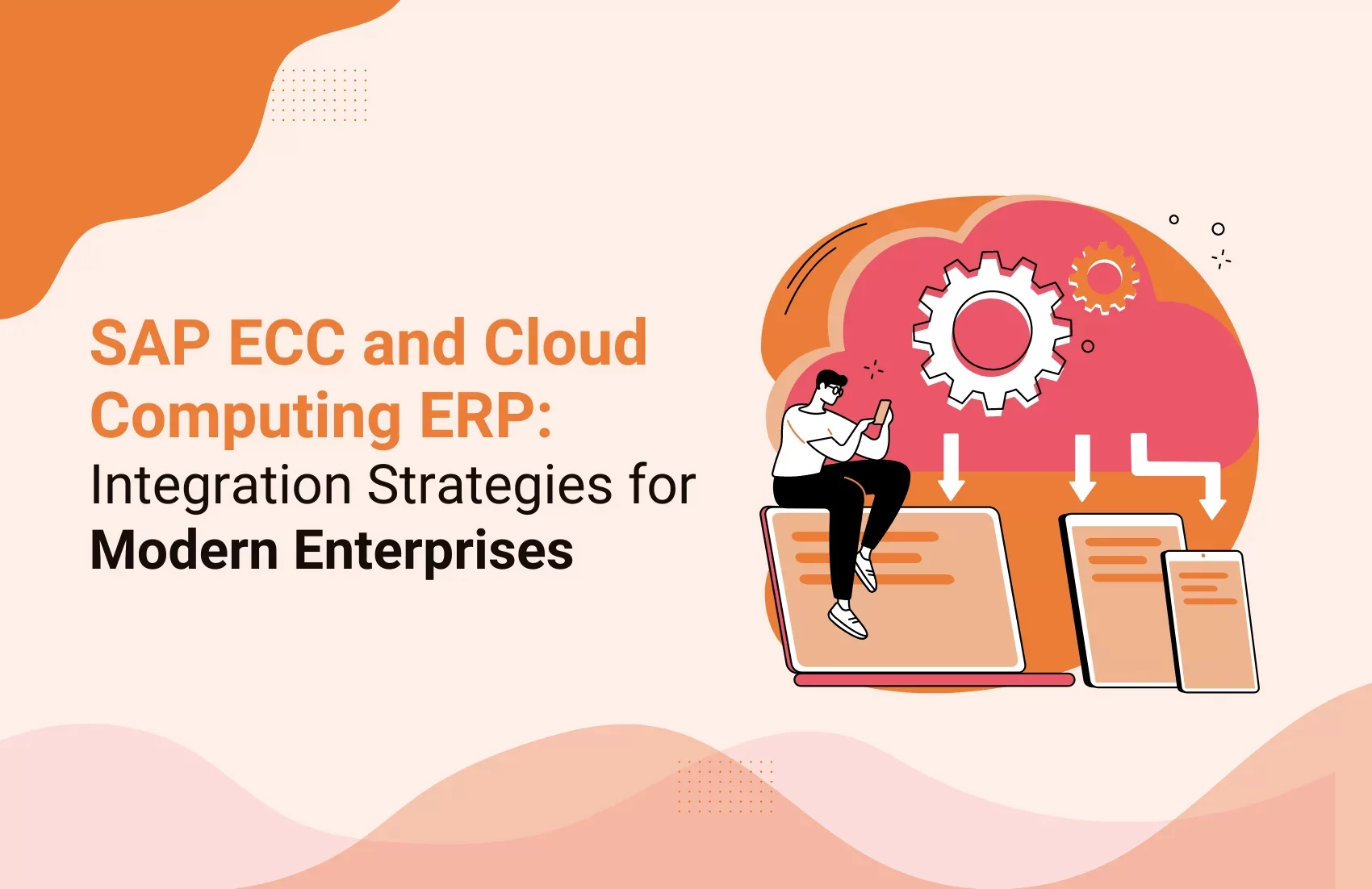In the fast-paced world of business, staying ahead means having the right tools and systems in place. That’s where SAP ECC and Cloud Computing ERP enter into the space. These two are game-changers in enterprise resource planning.
But, why should modern enterprises care about integrating SAP ECC with Cloud ERP?
For starters, integration means unmatched operational efficiency. Imagine having your on-premises SAP ECC system seamlessly connected with a cloud-based ERP, allowing for a unified flow of information and processes. This hybrid approach is not just a trend but a necessity in a world where agility and data-driven decisions are crucial.
According to PR Newswire, It is projected that more than 55% of retail customers use hybrid ERP implementations, with smaller core apps on-premise and the remainder in the cloud.
The reason?
The benefits are too significant to ignore. Integrated systems can lead to cost savings and a competitive edge that keeps you ahead of the curve. As a result, Gartner predicts that by the end of 2024, 65% of firms will view integration capability expenditures as strategic investments.
Therefore, integrating SAP ECC with Cloud ERP is more than just a technical upgrade. Let’s dive deeper into how this integration can transform your enterprise.
Understanding SAP ECC
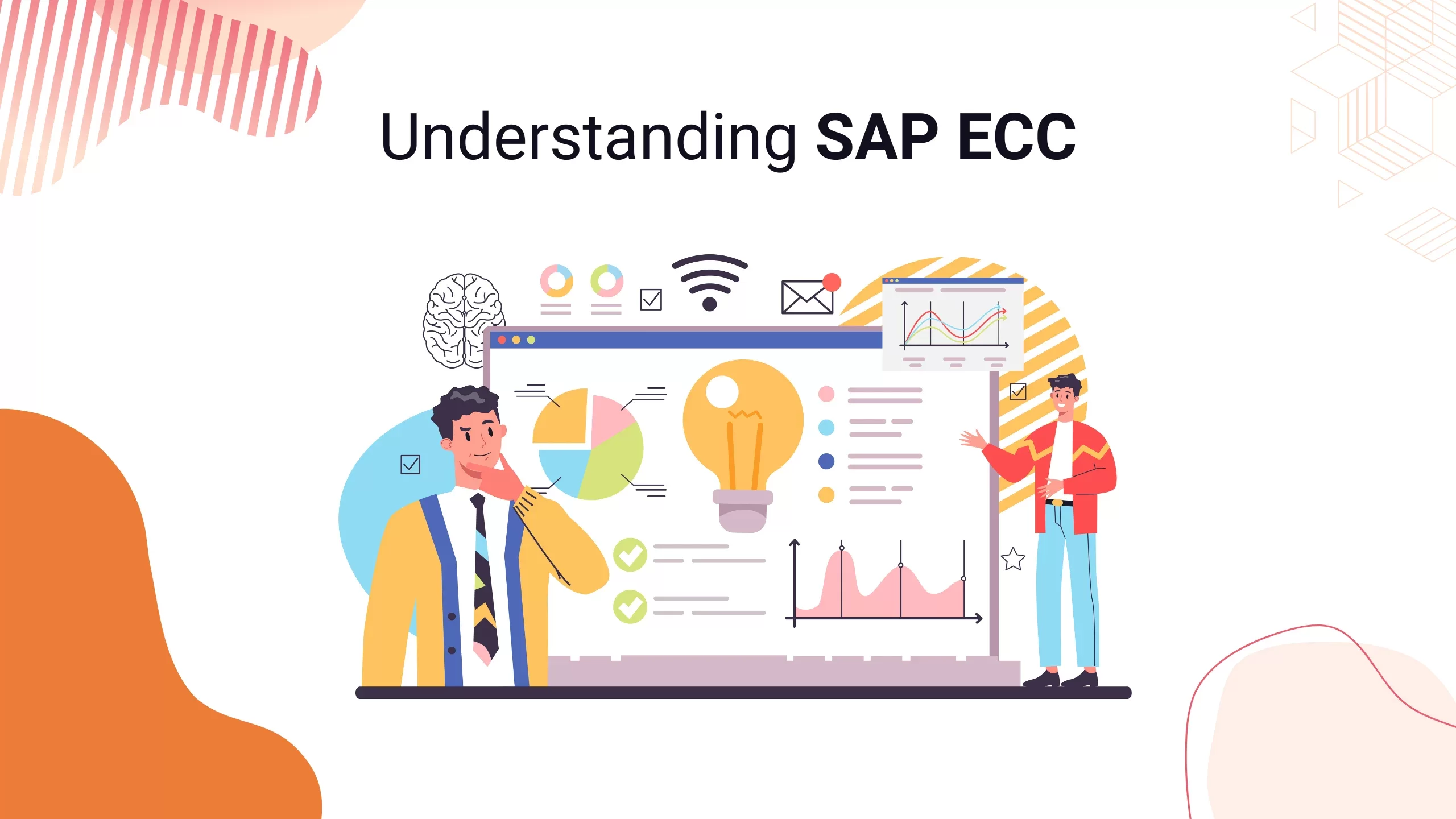
Deciphering SAP ECC: Your Comprehensive Guide
SAP ECC, or SAP Enterprise Central Component, is the beating heart of many enterprises. It’s a comprehensive ERP solution designed to manage critical business processes in a unified system. From financials to human resources, and supply chain management to production planning, SAP ECC covers it all.
However, while SAP ECC is a powerful tool, it’s not without its challenges. SAP ECC comes with issues such as:
- Scalability Issues, and
- Cost of On-Premises Infrastructure
As a result, in an era where digital transformation is key to staying competitive, traditional SAP ECC software can lag behind. Moreover, they often require significant customization to integrate with new technologies.
Therefore, integrating SAP ECC with cloud-based ERP solutions offers a pathway to overcome these challenges, providing scalability, cost efficiency, and flexibility.
The Rise of Cloud Computing ERP
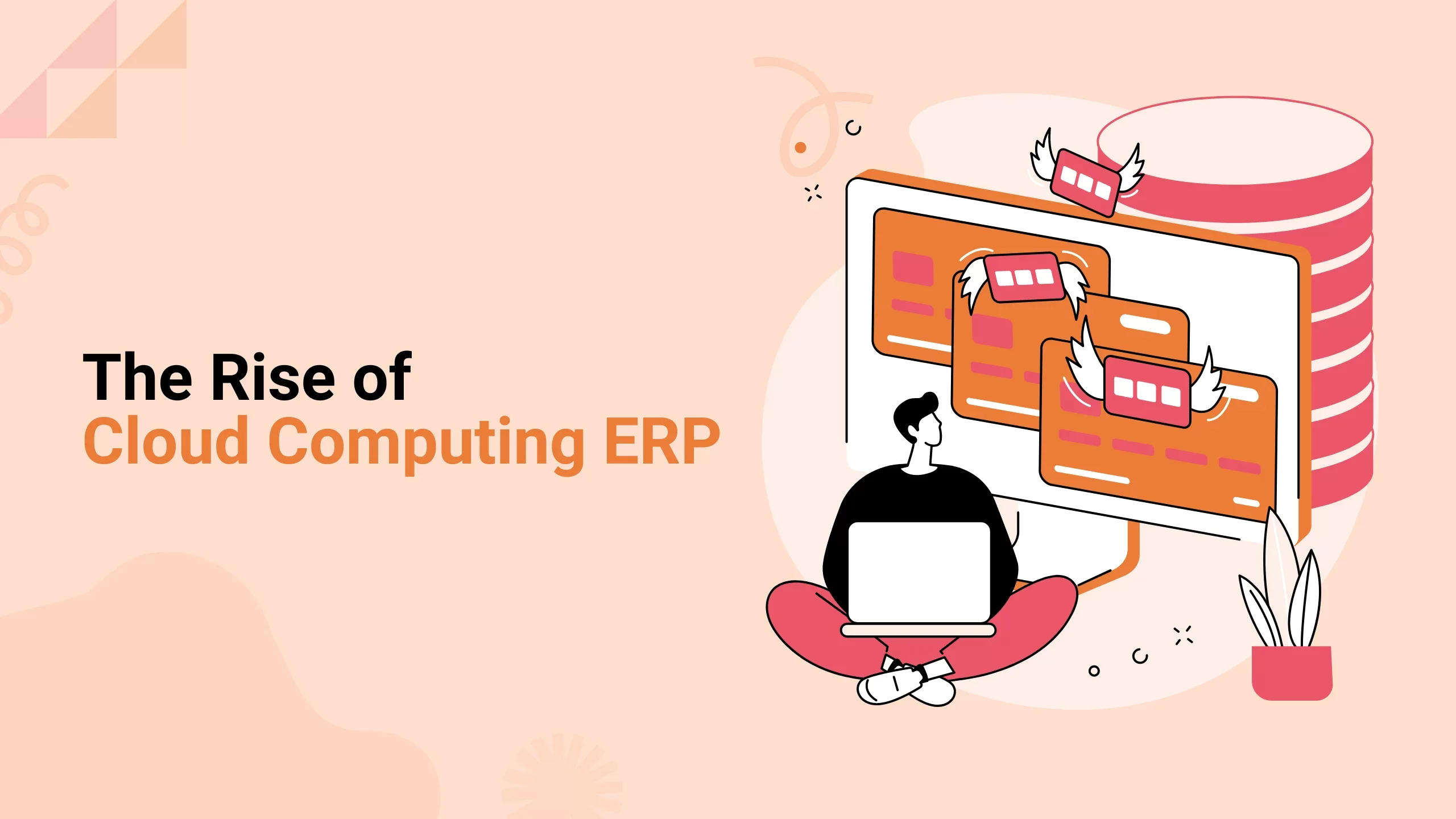
Navigating the Cloud: The Evolution of ERP
Cloud Computing in ERP is like having a powerful ERP system without the heavy lifting. These solutions are hosted on remote servers and accessed via the Internet. Therefore, they allow businesses to manage their operations from anywhere with an internet connection.
Key Features of Cloud-Based ERP Solutions
Cloud ERP comes packed with features designed to streamline and enhance your business:
- Real-time Data Access: Access your data anytime, anywhere.
- Scalable Infrastructure: Easily adjust resources as your business grows.
- Automatic Updates: Stay up-to-date with the latest features and cybersecurity patches.
Major Providers of Cloud ERP
When it comes to cloud ERP, a few heavyweights lead the pack:
- SAP S/4HANA: The next-generation business suite designed for the digital economy.
- Oracle Cloud ERP: Comprehensive suite offering everything from financials to project management.
- Microsoft Dynamics 365: Unified ERP and CRM capabilities that adapt to your business needs.
It’s no secret that the advantages of cloud ERP eliminate the challenges of SAP ECC. Therefore, combining the robust, proven functionalities of SAP ECC with the agility and advanced capabilities of cloud ERP systems unlocks a world of possibilities.
This hybrid approach leverages the strengths of both platforms. Let’s dive into the strategies and best practices that make it all possible.
Integration Strategies for SAP ECC and Cloud Computing ERP
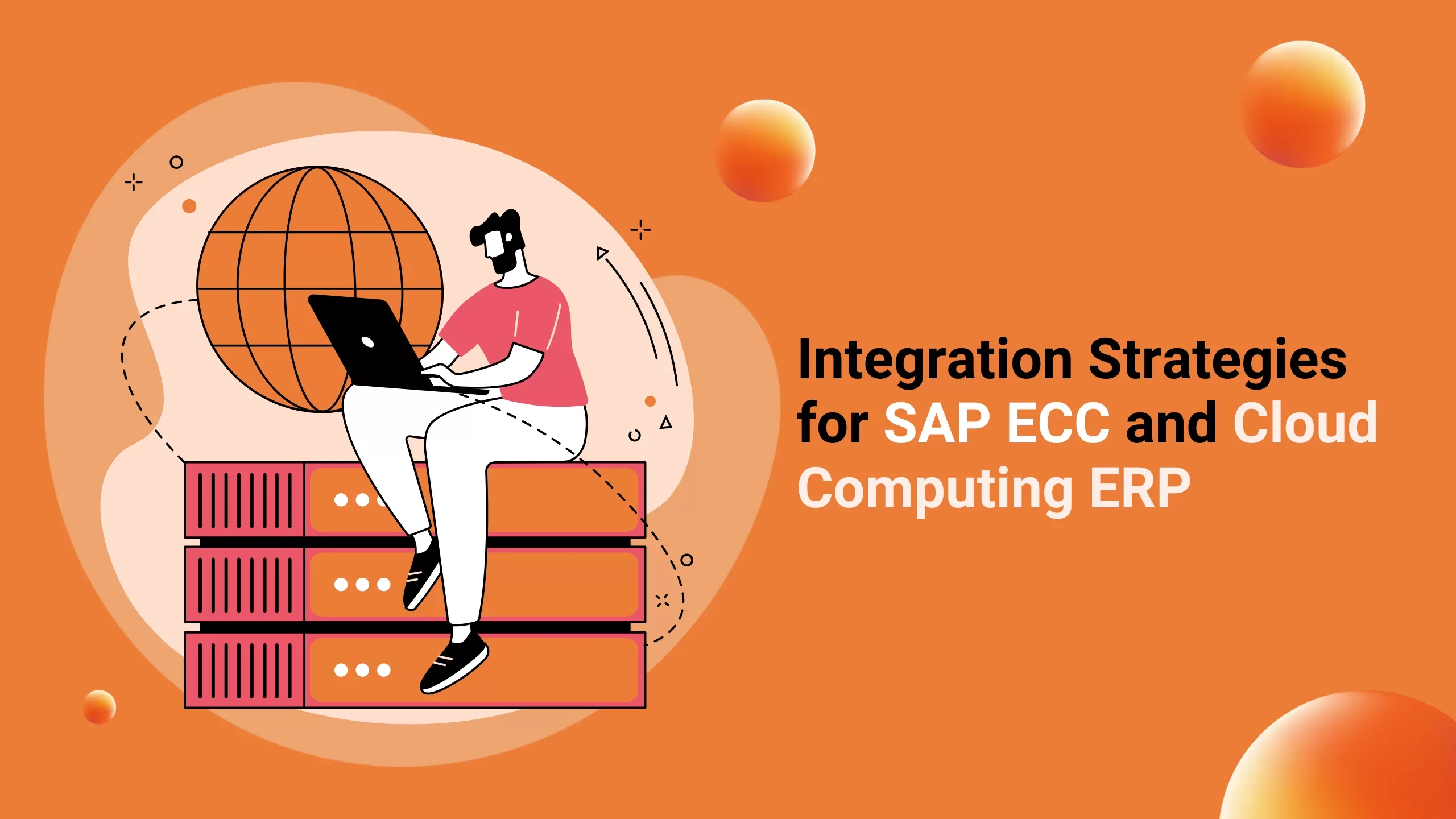
Seamless Fusion: Strategies for SAP ECC and Cloud ERP Integration
Integrating SAP ECC with Cloud ERP can seem daunting, but with the right strategies, it can be a seamless transition. Let’s break down the key approaches and tools to make this integration successful.
Hybrid ERP Solutions
A hybrid ERP approach combines the strengths of on-premises SAP ECC with the flexibility of cloud-based ERP systems. This setup allows businesses to maintain critical legacy systems while taking advantage of the latest cloud technologies.
Benefits of a Hybrid ERP Approach:
- Flexibility: Adapt to changing business needs without overhauling existing systems.
- Cost Efficiency: Reduce costs by moving non-critical functions to the cloud.
- Scalability: Easily scale operations as your business grows.
- Risk Mitigation: Gradual transition minimizes risks associated with full-scale migrations.
Examples of Hybrid ERP Models:
- Two-Tier ERP: Primary ERP on-premises with secondary cloud ERP for subsidiaries or specific business units.
- Mix and Match: Combining core modules on-premises (e.g., financials) with cloud-based modules (e.g., HR, CRM).
Data Migration Strategies
Migrating data from SAP ECC to a cloud ERP system requires meticulous planning and execution to ensure success.
Best Practices:
- Assessment: Conduct a thorough assessment of your current data and systems.
- Mapping: Moreover, it maps out how data will transition from SAP ECC to the cloud ERP.
- Cleansing: Cleanse data to remove duplicates and correct inaccuracies.
- Pilot Testing: Lastly, pilot migrations are conducted to identify and resolve potential issues.
Ensuring Data Integrity and Security During Migration
- Encryption: Use encryption to protect data during transfer.
- Validation: Validate data at each stage of the migration to ensure accuracy.
- Backup: Maintain backups to recover from any unexpected issues.
- Compliance: Lastly, compliance with relevant data protection regulations (for example, GDPR, and CCPA) must be ensured
Integration Middleware and Tools
Middleware solutions are critical for integrating SAP ECC with cloud ERP systems. They facilitate seamless communication and data exchange between different systems.
Popular Middleware Solutions:
- SAP Cloud Platform Integration: Tailored for SAP environments, it makes sure smooth integration with cloud applications.
- Dell Boomi: Known for its ease of use and robust integration capabilities across various platforms.
- MuleSoft: Offers extensive connectors and tools for integrating diverse systems and applications.
How Middleware Facilitates Seamless Integration
- Data Transformation: Converts data into compatible formats between systems.
- Orchestration: Manages workflows and processes across different platforms.
- Real-time Sync: Ensures real-time data synchronization. Thus, reducing latency and errors.
Phased vs. Big Bang Approach
Phased Integration involves gradually migrating parts of the system over time rather than all at once. Thus, this approach allows businesses to implement the new system in stages, typically module by module or business unit by business unit.
On the other side, the Big Bang Approach means switching from the old system to the new one in a single, comprehensive move. Therefore, the entire organization transitions to the new ERP system at once.
Pros and Cons of Phased Integration
| Phased Integration: | Big Bang Approach: | ||
| Pros: | Cons: | Pros: | Cons: |
|
|
|
|
Best Practices for Successful Integration
Integrating SAP ECC with Cloud ERP can be a complex journey, but following best practices ensures a smoother transition and maximizes benefits. Here’s how to do it right:
Comprehensive Planning and Strategy
Start with a comprehensive plan that outlines every step of the integration process. Define the scope, timeline, resources, and potential risks. Additionally, detailed planning helps anticipate challenges and prepares your team for a smoother transition.
Moreover, Establish clear, measurable objectives for what the integration aims to achieve. Whether it’s improving data accessibility, or reducing costs, clear goals provide direction and a benchmark for success.
Selecting the Right Technology and Partner
Ensure the integration tools are compatible with both SAP ECC and the chosen cloud ERP system. Look for solutions that facilitate seamless data exchange and process synchronization.
Furthermore, choose technologies that can grow with your business. Scalable solutions prevent the need for frequent upgrades and ensure long-term viability.
Importance of Selecting Experienced Partners and Consultants
Select partners and consultants with a proven track record in ERP integrations. Their expertise can help navigate complexities, avoid common pitfalls, and implement best practices.
Additionally, experienced partners like Insnapsys provide ongoing support and guidance. As a result, they make sure the integration process remains on track and any issues are promptly addressed.
Continuous Monitoring and Optimization
Continuously monitor the performance of the integrated systems to make sure they are functioning as expected. This helps identify any issues early and allows for timely interventions.
Additionally, keep the integrated systems up-to-date with the latest software patches, security updates, and feature enhancements. This ensures your systems remain secure, efficient, and capable of supporting your business needs.
How Insnapsys Can Help in SAP ECC and Cloud ERP Integration
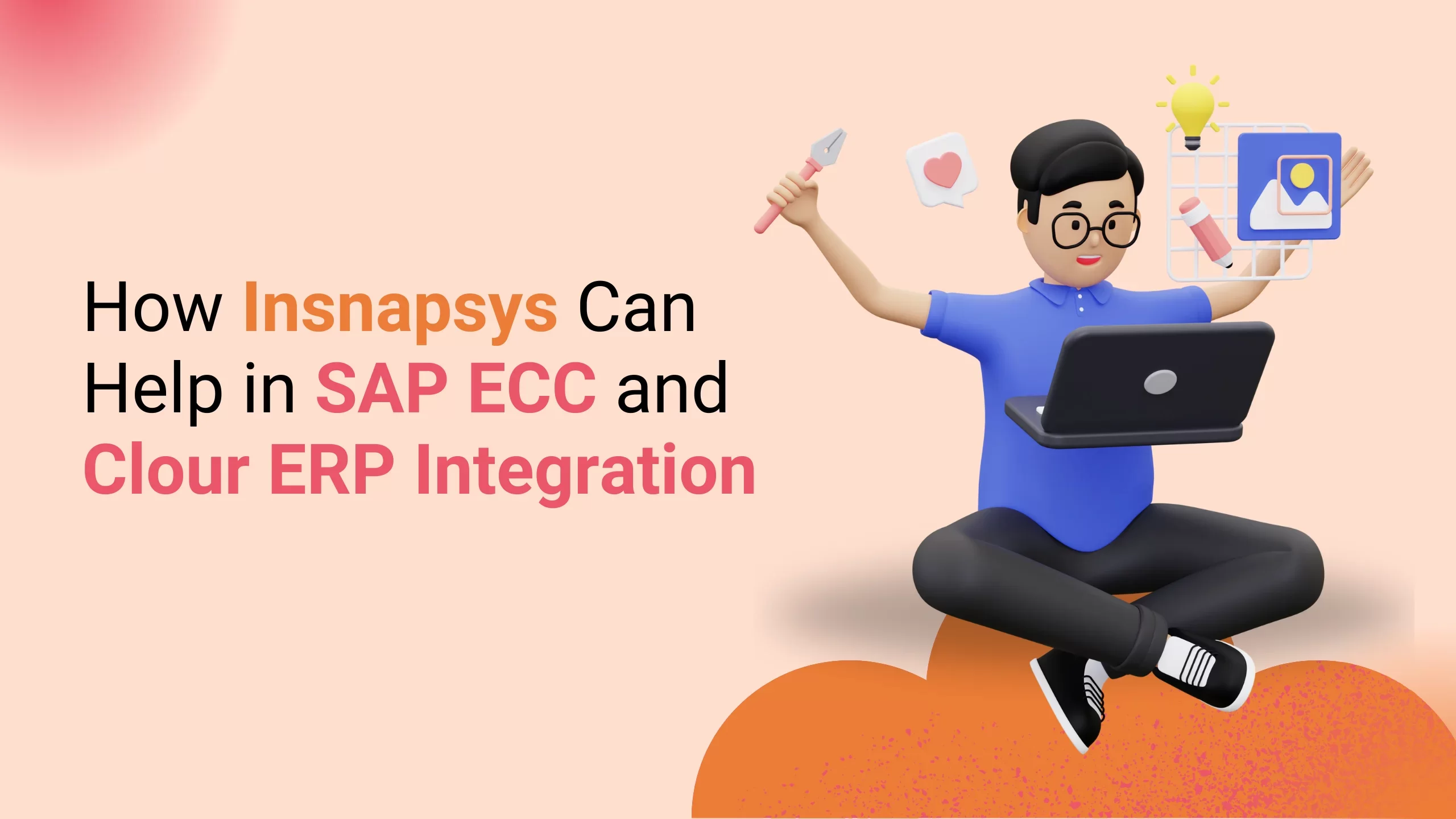
Insnapsys’ Expertise in SAP ECC and Cloud ERP
Insnapsys specializes in IT staffing and ERP integration, offering top-tier talent and comprehensive solutions to ensure business success. With a profound understanding of SAP ECC and Cloud ERP systems, Insnapsys helps organizations navigate the complexities of integration seamlessly.
Overview of Insnapsys’ Services
Insnapsys connects businesses with highly skilled IT professionals who have extensive experience in ERP systems. The talent pool includes experts in SAP ECC, SAP S/4HANA, Oracle Cloud ERP, Microsoft Dynamics 365, and more. Here’s how Insnapsys helps.
- How Insnapsys Screens and Selects Top Talent
- Rigorous Screening Process: Firstly, Insnapsys employs a multi-step screening process, including technical assessments, interviews, and background checks to ensure the selection of the most qualified candidates.
- Industry Expertise: Secondly, Insnapsys focuses on finding professionals with specific experience in relevant industries and ERP systems.
- Cultural Fit: Lastly, Insnapsys also considers cultural fit. Thus, this ensures that the candidates placed will integrate smoothly into the client’s team and work environment.
- Matching Clients with the Best Experts in SAP ECC and Cloud ERP Integration
- Customized Matches: Insnapsys tailors its search to match specific requirements, This makes sure that clients get the best experts for their projects.
- Comprehensive Profiles: Furthermore, each candidate profile includes detailed information about skills, experience, and past projects. Thus, providing confidence in hiring decisions.
- Ongoing Support: Lastly, Insnapsys remains involved throughout the project to certify that placements meet expectations and address any issues promptly.
In short, with Insnapsys by their side, businesses can confidently navigate the complexities of integrating SAP ECC with Cloud ERP.
Also Read: The Next Wave of Cloud Edge Technologies: Edge Computing and Its Impact on Businesses
Conclusion:
The integration of SAP ECC with Cloud ERP systems stands as a pivotal strategy for enterprises striving to thrive amidst digital transformation. By merging the robust functionalities of SAP ECC with the agility and scalability of Cloud ERP, organizations can unlock unprecedented efficiency and competitiveness.
Therefore, with the right strategy and partner like Insnapsys by their side, businesses can harness the full potential of ERP integration and walk on a path toward sustained success in the digital era.
FAQs
-
What is the ECC module in SAP?
The ECC module in SAP (Enterprise Central Component) is like the heart of SAP’s software system. It’s made up of different parts, called modules, that help businesses manage things like finances, sales, inventory, and more.
-
Is SAP ECC and Hana same?
No, they’re not the same. SAP ECC is the older version of SAP’s software, while HANA is a newer technology that makes things run faster.
-
What is SAP ECC integration?
ECC integration is about making SAP ECC work together with other software or systems, so they can share information and work smoothly together.
-
Why is S/4 HANA better than ECC?
S/4HANA is like a shiny, new version of SAP ECC. It’s basically the next level of SAP software, designed to help businesses keep up with the fast-paced digital world.
-
What are some common challenges organizations face during SAP ECC integration with other systems
Sometimes, the systems don’t speak the same language, so getting them to understand each other can be a challenge. Plus, there’s the risk of things going wrong during the integration process. Therefore, it is crucial to hire expert developers to get things done smoothly.
-
What is cloud ERP integration?
Cloud ERP integration refers to the process of connecting cloud-based Enterprise Resource Planning (ERP) software with other systems or applications to streamline data flow and enhance operational efficiency.






